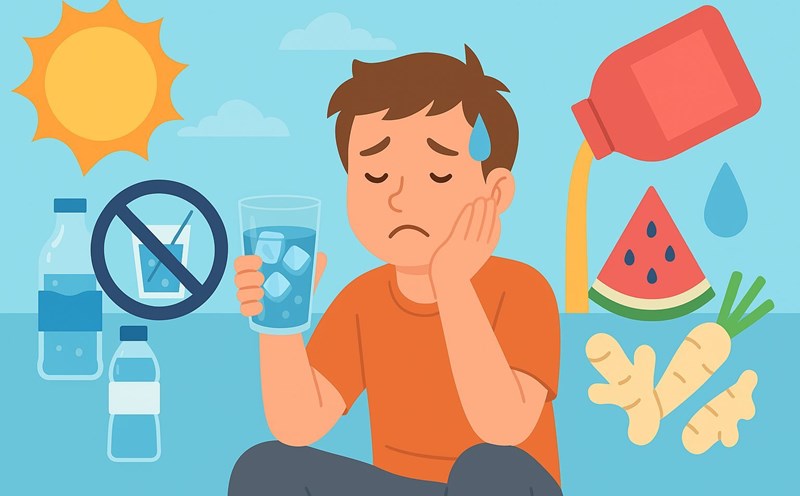Pressure and oxygen are the silent causes of fatigue
You have just had a short flight, just a few hours but feel exhausted like you have just completed a long journey? Feeling tired after flying is common and has a scientific basis. According to medical experts, the cause comes from many factors combining environment, physiology and psychology.
Dr Hiran S. Reddy, a consultant physician at Gleneagles Hospital, Hyderabad (India), said the plane's cabin was compressed at an altitude of 6,000 triguous feet (equivalent to about 1,828.8 - 2,438.4 meters) above sea level.
"This environment causes oxygen levels to decrease slightly, causing a mild lack of oxygen. This can lead to headaches, sluggishness and fatigue, even when flying for only a short time," Reddy said.
The humidity in the cabin is also very low, usually below 20%. This makes the body susceptible to dehydration, leading to dry skin, dry eyes, dry throat and a decrease in overall energy levels. In addition, sitting for a long time without moving, blood circulation is affected, making the body feel heavier and more tired.
Stress and environmental conditions play a big role
Sharing the same view, Dr Narander Singla, a doctor at Birla CK Hospital, Delhi (India), added that the cramped space, long lines at the security checkpoint, noise in the air cabin and having to deal with bacteria from other passengers also increase physical and mental stress levels.
For longer flights or with time zones, circadian rhythm disturbances can cause insomnia, make it difficult to regulate mood, and lead to a prolonged feeling of fatigue after landing.
What to do to limit fatigue when flying?
Experts recommend drinking plenty of water before, during and after flights to maintain body moisture. Limit caffeine and alcohol as they increase the risk of dehydration. During flights, you should do light exercise, such as rotating your wrists, extending your legs, or walking in the cabin to promote blood circulation.
When you get there, get exposed to natural light as soon as possible to reset your biological clock, and if possible, gradually adjust your sleep before the trip to reduce the impact of time savings.
Finally, implementing good personal hygiene measures such as washing your hands regularly and wearing a mask in crowded spaces also contributes to reducing the risk of infection, this is a factor often overlooked when talking about fatigue after flights.











